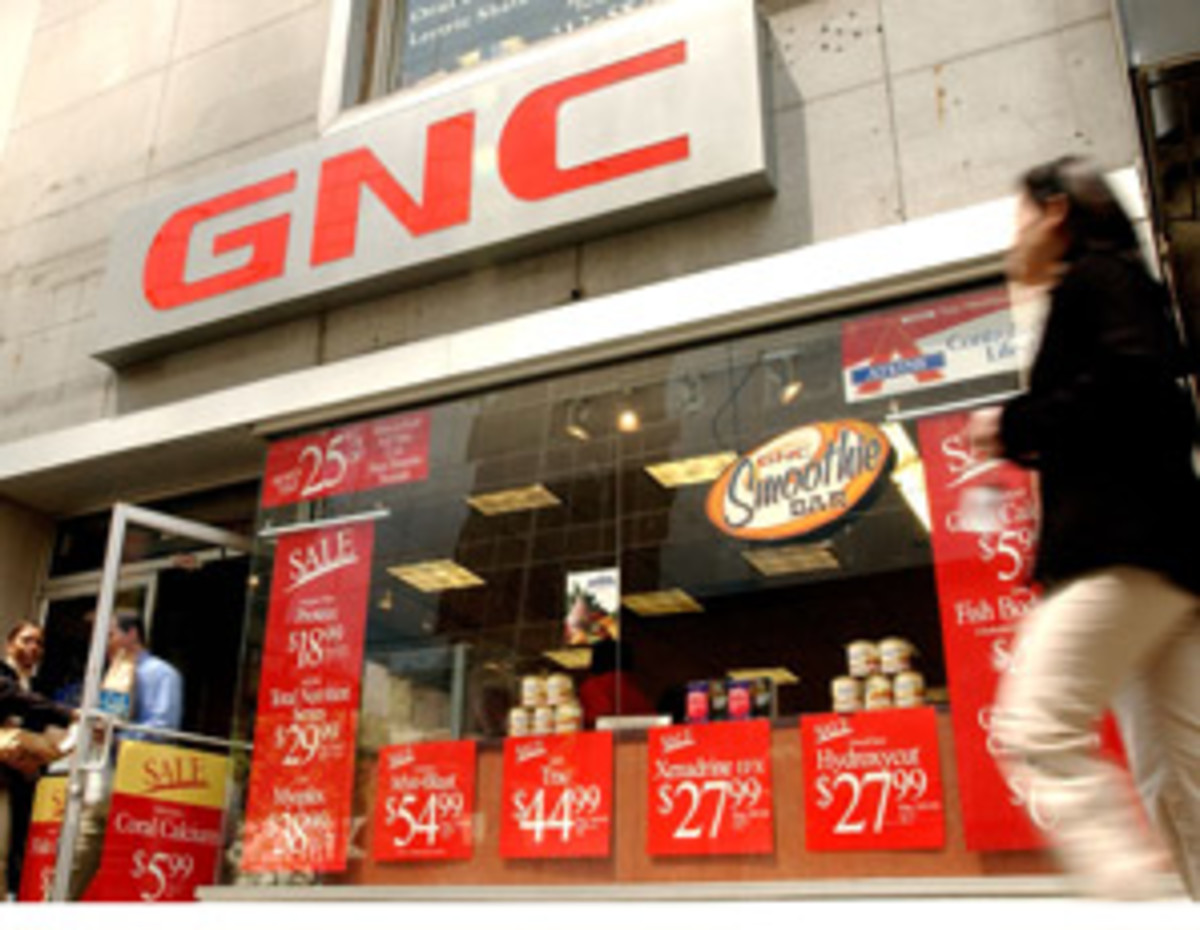What's on the shelves at GNC?
Dr. Todd Schlifstein, a New York-based sports rehabilitation medicine expert, who testified before Congress during its steroid hearings in 2008, is trolling the aisles of a GNC in Manhattan. He is trying to figure out exactly what is being sold.
He picks up Sugar Balance, produced by GSL Technology. The white-and-green box claims that the product "may aid insulin function" and it is sitting near containers of other supplements that claim to boost insulin, which can slow down the degradation of muscle tissue and provide fuel for muscle cells, improving stamina. (Insulin boosting is banned by the World Anti-Doping Agency but is difficult to test for.) One ingredient in Sugar Balance and several adjacent products is a plant species called Momordica charantia, or bitter melon. Bitter melon has been found in studies to improve insulin sensitivity, which might help diabetics but can be dangerous in healthy athletes looking to build muscle. "There are case reports of people who have given themselves diabetes with supplements," says Schlifstein. "If you pump your insulin up too much, your body drops its own production."
As Schlifstein wanders the aisles, he marvels at how few ingredients he can actually identify. Some, given only by their complex chemical formulas, would require a stack of organic chemistry books to decipher; others are hidden behind trade names. Schlifstein fiddles with a metallic-red cylinder of BSN's Volumaize powder. Each scoop of Volumaize has 29,500 milligrams of ingredients, 26,500 of which are part of "a proprietary myocellular expansion matrix" (read: muscle builder) featuring BSN-created ingredient names like Glycerol-Phosphoplexx. Says Schlifstein, "There's no way a normal person can figure out what's in this. I can't tell what's in this."
Schlifstein laughs when he spots Gaspari Nutrition's Novedex XT, because the name is so similar to that of the prescription drug Nolvadex (tamoxifen), which blocks the effects of estrogen in the body. That helps stop the growth of some breast cancers -- and halt the feminizing side effects (such as breast growth and testicular shrinkage) of steroid use. Novedex XT is not Nolvadex but claims to do similar things. The supplement contains the testosterone-boosting and estrogen-blocking compound androstatriendione (ATD), which is legal but banned by some sports. Last October two starters for the New York Red Bulls of MLS became the first players in the league's 13-year history to fail a drug test; the test detected ATD, which the players contend was in a supplement they declined to identify.
Schlifstein ambles over to the joint-health section, where glucosamine and chondroitin supplements dominate the shelves. Glucosamine and chondroitin are compounds found in human cartilage. Many of the supplements, like GNC's Fast Flex, advertise their ability to rebuild joint cartilage. Studies have found conflicting results, but according to a nationwide NIH study released last September, people with joint wear and tear who take oral glucosamine and chondroitin supplements "fare no better than [people taking a placebo] in slowing loss of cartilage." This may be because the cartilage building blocks do not find their way to the joints. "It would be great if it worked [orally], but if we want something in the joint, we have to inject it in there," Schlifstein says. By law, dietary supplements cannot be made for injection.
In the pain relief aisle, Schlifstein examines tubes of creams. Many contain menthol and some claim that the substance helps "initial skin penetration." Says Schlifstein, "Menthol is just a topical numbing agent. It's what makes Bengay smell." While on the topic of Bengay, Schlifstein points out that the ubiquitous cream contains methyl salicylate, which, like menthol, smells minty and numbs the skin. The danger with methyl salicylate is overdose, since it is contained in many different products, including Listerine and some crewing gums, that people often take at the same time. In 2007, a high school cross-country runner from Staten Island, N.Y., died from salicylate poisoning that the medical examiner said was linked to her pain-relief creams.
Schlifstein notes that some creams do not contain salicylate but do have vitamin E. That's benign, right? Well, it is unless you need your blood to clot normally. Vitamin E and some other supplements, including Ginkgo, thin the blood. "I had a patient, a nurse, who had back surgery," Schlifstein says. "She was taking vitamin E for a long time, but she didn't say anything because she didn't consider it a drug. So she's in the hospital for a couple days after back surgery and develops this [blood clot] the size of a floor mat. Her whole entire back filled up with blood. It was a mess."






